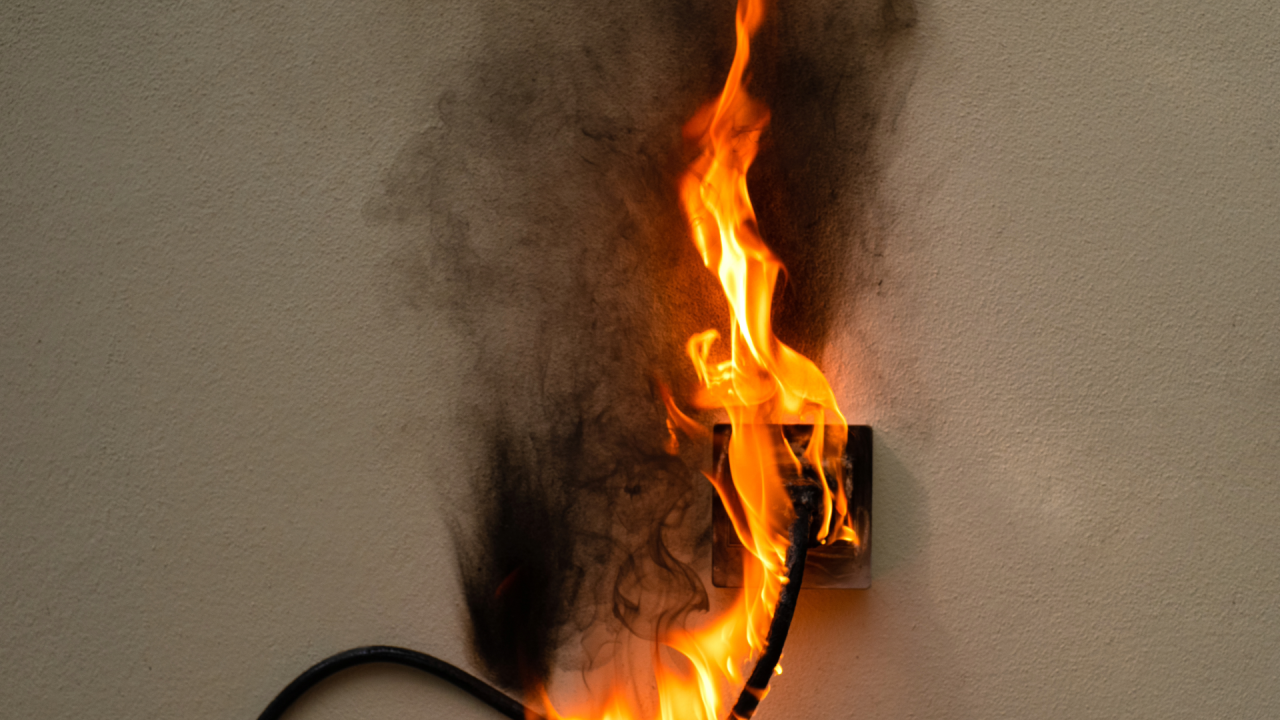The electrical panel is the breaker box or distribution point that distributes power to circuit breakers and controls power loads in any house or building.
This component becomes a safety risk when it malfunctions because the signs of its failure are hardly noticed until they cause massive catastrophes, such as fire outbreaks.
Firstly, there is a burning out. Suppose one has overloaded circuits, too many electronic devices are plugged into them, or there are loose or corrupted connections inside the panel. In that case, you will produce more juice than those junctions can handle.
Due to that heat, the insulation on the wires may fail, increasing the chances of these circuits beginning to arc.
This then means a fire. Furthermore, lazy breakers might not trip if an overload or short occurs on the circuit.
Bad wiring can kill you.
That’s why professional electricians get so upset when they see some projects with sloppy and unsafe work done on them.
Most homes constructed several decades ago have aged terrible panels that are expected to fail just as well and burn their inhabitants.
Federal Pacific Electric (FPE) model panel is one example researchers have frequently reported as having design defects.
These breakers are infamous for not tripping when they should, increasing the chances of a fire outbreak in one of your rooms.
Do you have no idea what type of panel you have? Look at the box on the wall, see the brand name, and then Google it.
Warning indications of a bad electrical panel include:
- frequent tripping circuit breakers
- lights flickering
- a burning odor or scars around the panel
- buzzing, crackling sounds from inside the panel
- the actual board is warm or hot
- rusts, or any other visible damage to board components.
Signals that alert signs are often identified in time and can be corrected by an electrician before they become annoying, eventually becoming a dangerous fire hazard.
Regular inspections and maintenance would prevent electrical fires caused by old electrical panels.
Qualified electricians should conduct yearly electrical inspections and older electrical panels should be upgraded and replaced with new ones with additional safety features that restrict incidental heat output.
Preventing electrical fires from older electrical panels may also require informing homeowners to consciously manage their electricity loads and avoid overloading the electric panel.
For instance, spreading electrical devices more evenly around a house can help an electric panel distribute its energy more effectively, preventing it from being overloaded.
Surge protectors could provide additional protection and avoid fixative devices such as extension cords.
To conclude, we are sure that faulty electrical panels must be addressed in these areas.
Failing electrical panels could cause overheating, short circuits, and electrical fires, which can damage property and life.
Respectively, annual inspections, prompt repair, and preventive upgrades for electrical panels occur regularly for homes and buildings.
Addressing the danger acknowledged by faulty electrical panels is a priority, especially for homeowners and building managers.


